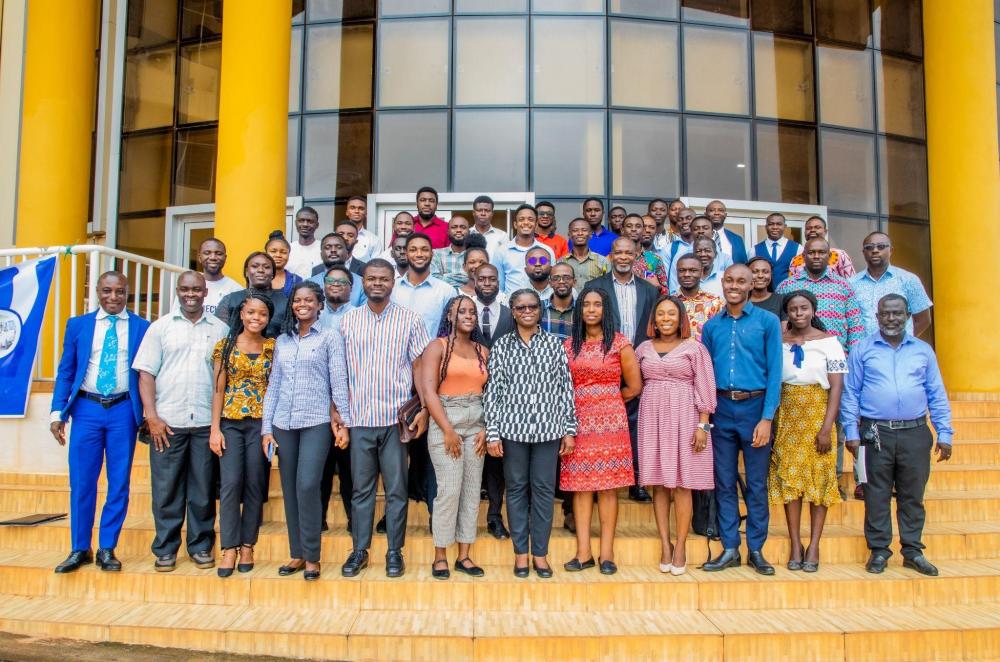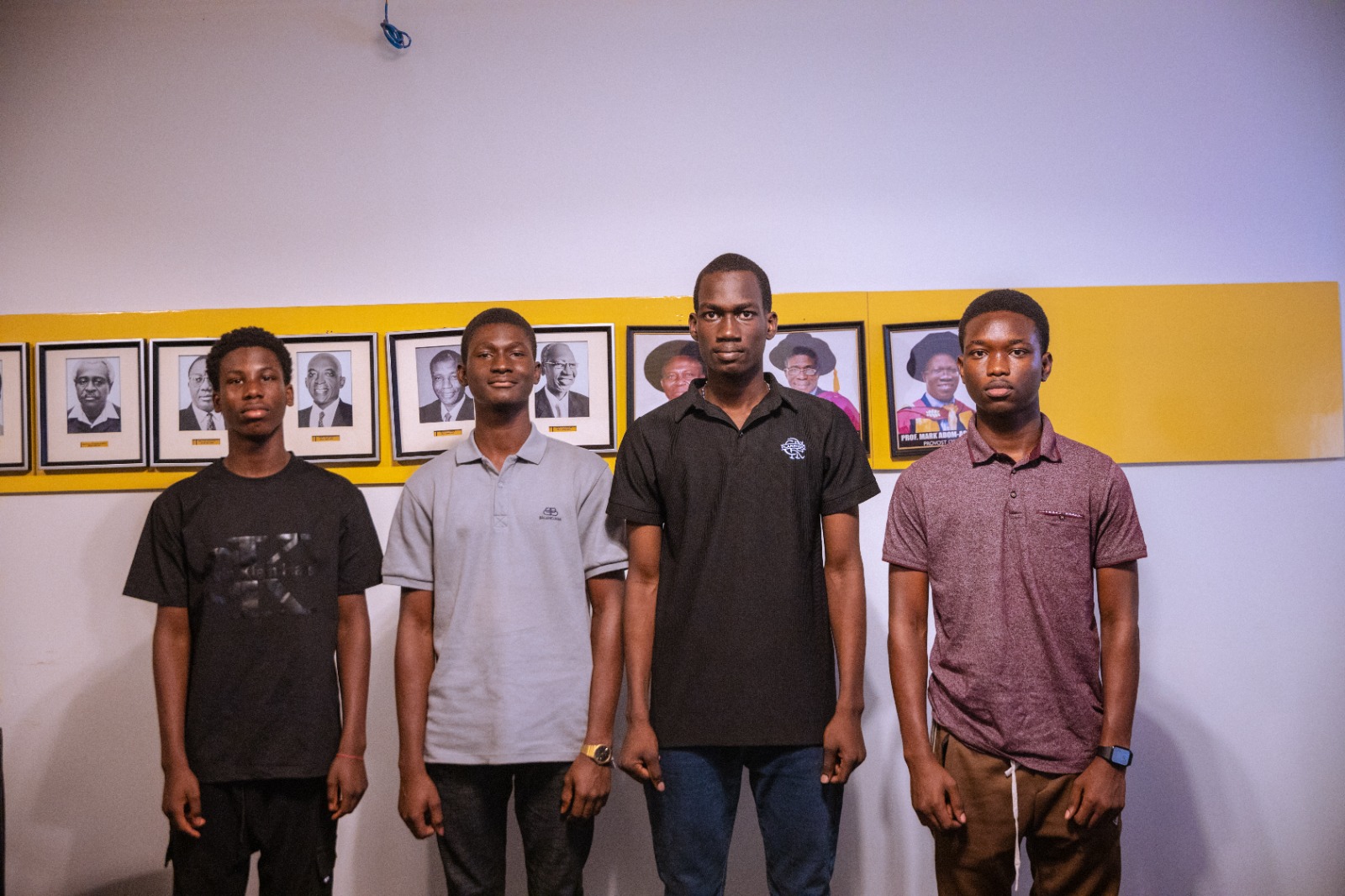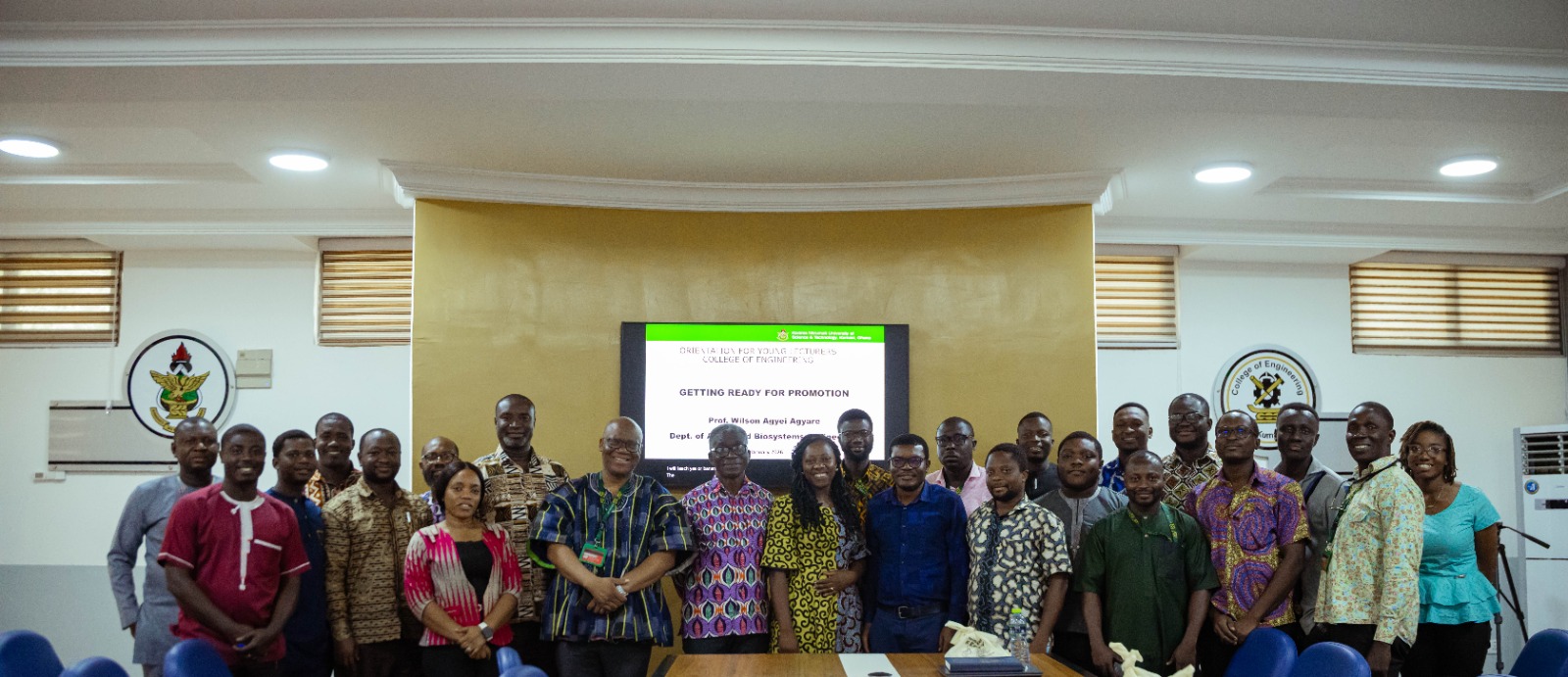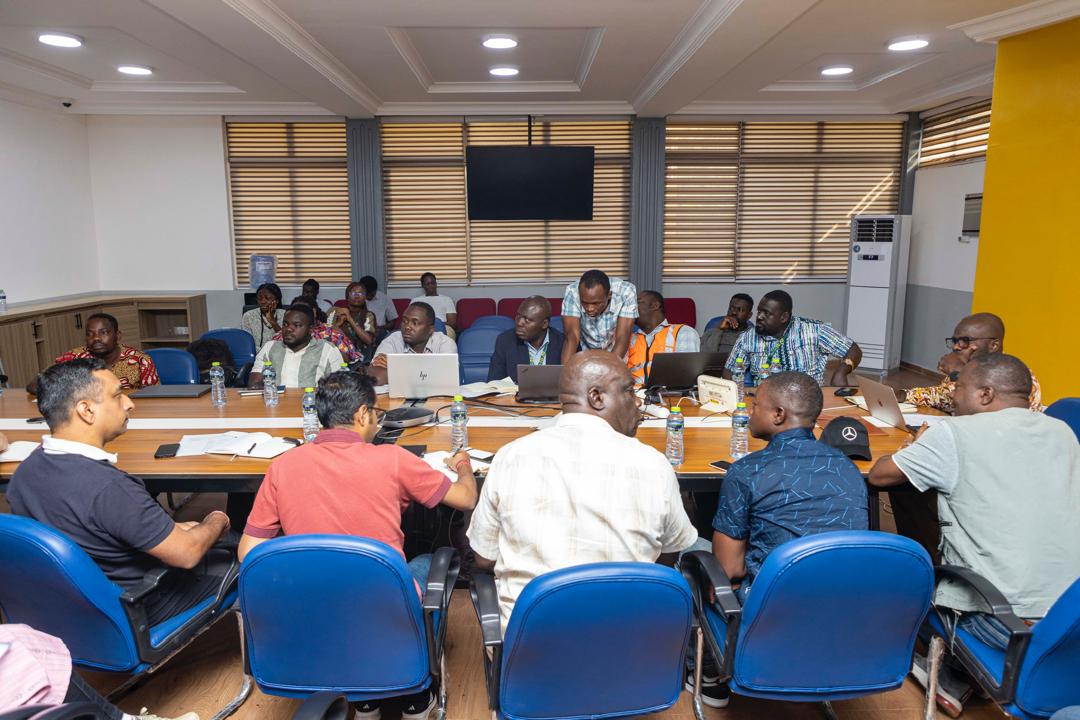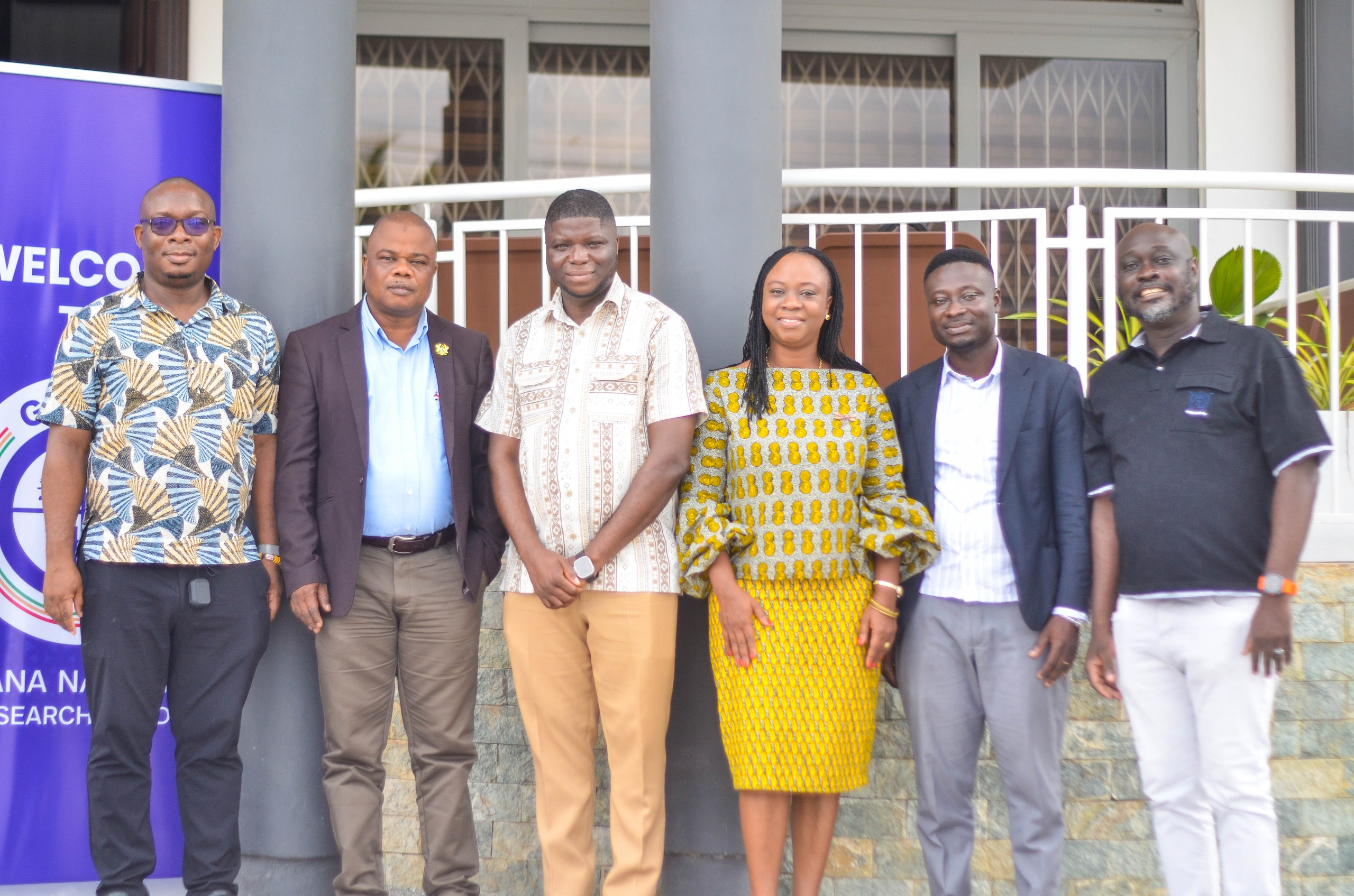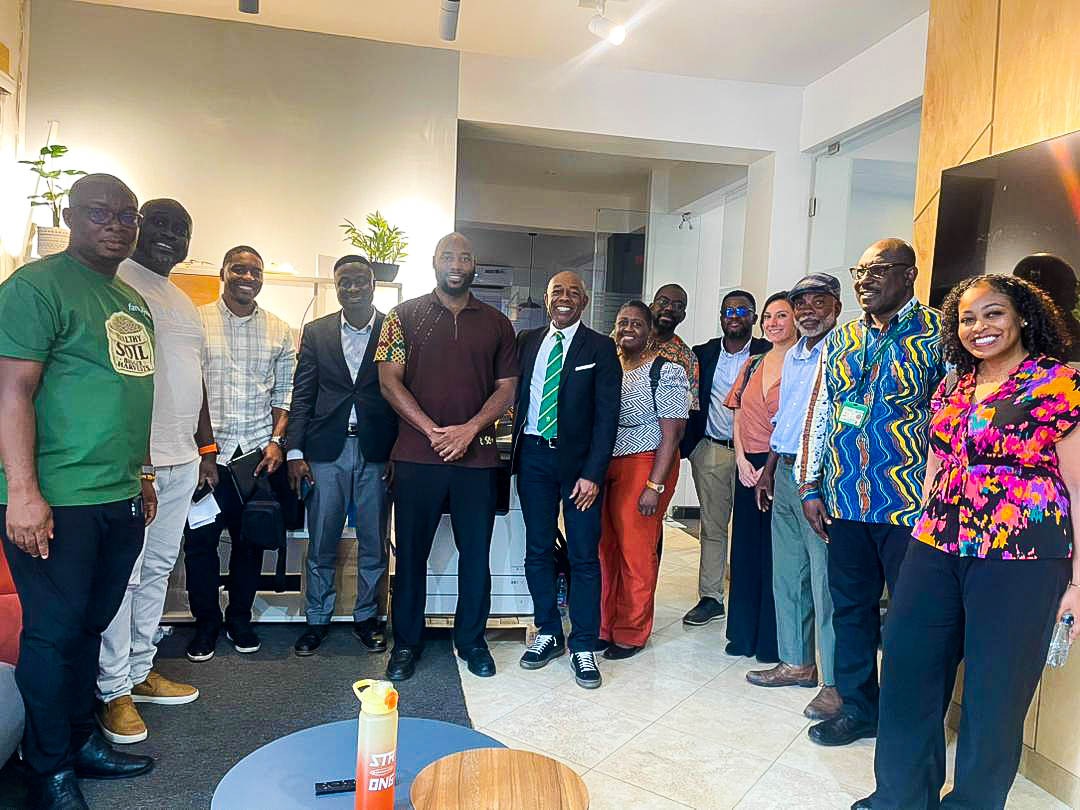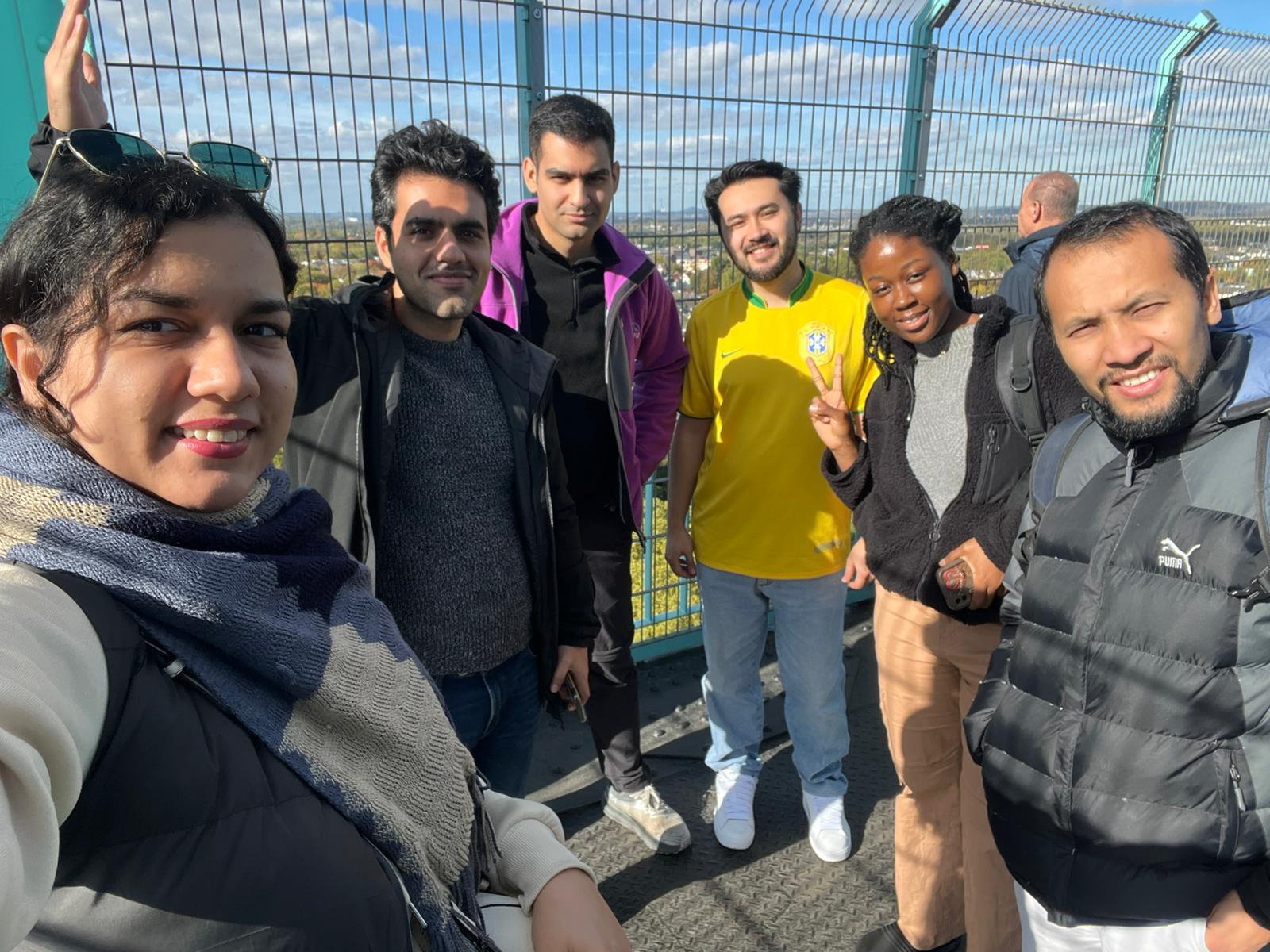On August 27, 2024, the Regional Transport Research and Education Centre, Kumasi (TRECK), held a workshop for transport-related stakeholders in the Greater Kumasi area at the RWESCK Conference Room, KNUST.
The workshop gathered representatives from key agencies, including the Kumasi Metropolitan Assembly, Oforikrom Municipal Assembly, Asokwa Municipal Assembly, Kwadaso Municipal Assembly, Old Tafo Municipal Assembly, Asokore Mampong Municipal Assembly; the Department of Urban Roads, Department of Feeder Roads, Land Use and Spatial Planning Authority (LUPSA), CSIR-Building and Road Research Institute (BRRI), Ghana Road Transport Co-ordinating Council (GRTCC), Ghana Private Road Transport Union (GPRTU), and the Ashanti Regional Co-ordinating Council (ARCC).
The workshop aimed to address the significant transport challenges confronting each agency and better coordinate their activities.

Prof. Helen Essandoh, the Director of TRECK, emphasised in her opening remarks that the forum is an opportunity to collectively address the challenges of improving the local transport system, services, and related issues in the Greater Kumasi area.
Prof. Essandoh hoped the participants' expertise would lead to engaging learning, networking, and collaboration. A key objective of the workshop was to develop a Memorandum of Understanding (MoU) that will guide future engagements. To achieve this, she proposed the establishment of a core team comprising one or two representatives from each agency to plan and execute future workshops and forums.

In a keynote address, Prof. Gift Dumedah, Associate Professor at the Department of Geography and Rural Development, KNUST, highlighted the critical role of transportation in ensuring access to essential social and economic opportunities such as healthcare, education, and employment. Prof. Dumedah mentioned that these opportunities are fundamental human needs that drive economic development and enhance the quality of life.
He pointed out that Kumasi faces particularly severe transportation challenges. The transport system is inefficient, resulting in unequal accessibility, traffic congestion, accidents, and unsafe road conditions.
Prof. Dumedah called for collective action to advocate for improvements to Kumasi’s transport system. He emphasised that stakeholders can address common issues through effective collaboration, including regulatory challenges, policy adjustments, and skills deficits.

Dr. Emmanuel Dzisi led the discussion session, where representatives from each agency presented their major challenges, including the proliferation of loading points, poor land use for spatial planning, inadequate infrastructure, and poor road networks.
A significant concern during the discussion was the need for more collaboration among the various agencies working on transportation projects. This lack of coordination was recognised as a major obstacle to effectively tackling the region's transportation issues.

Mr. Emmanuel Osei Yeboah, a representative of GPRTU, analysed that many of the collaboration issues among agencies stem from the fact that the union encompasses 24 agencies within the metropolis. This large number complicates decision-making and implementation. Additionally, the behaviour of some passengers not boarding commercial vehicles at designated points further exacerbates the problem.
It was agreed that decentralisation would be a key solution to address these issues. This approach would involve local assemblies managing and resolving transportation issues within the Greater Kumasi Metropolis.

Agencies present were divided into multiple groups to discuss their challenges and explore ways to collaborate more effectively. Each group was assigned specific discussion topics, such as ‘Developing Collaboration Mechanisms, Establishing Routine Engagements and Drafting an MoU.’ The groups then presented their findings to the audience and proposed some solutions.
One suggestion was to enhance public awareness through media engagement, ensuring that crucial transportation information reaches the general public. The groups also emphasised the need for increased collaboration between central agencies and the formalisation of agreements through an MoU to implement significant policies effectively.

Lawyer Nene Ahuma Korda from the KNUST Legal Service provided an overview of the guidelines for signing an MoU and outlined its benefits. He detailed the critical steps in drafting and formalising an MoU, emphasising how it can enhance cooperation, streamline processes, and ensure the successful implementation of joint policies and initiatives. His presentation aimed to clarify the importance of MoUs in fostering effective partnerships and achieving collective goals.
Prof. Helen Essandoh, in her closing remarks, expressed gratitude to all participants for their active engagement throughout the workshop. She emphasised the importance of the discussions and collaborative efforts in addressing Kumasi's transportation challenges. Prof. Essandoh highlighted the key outcomes, including the proposed solutions and the next steps for formalising partnerships through an MoU. She encouraged continued cooperation and commitment to implementing the agreed-upon strategies, wishing everyone success in their efforts to improve the local transport system.


